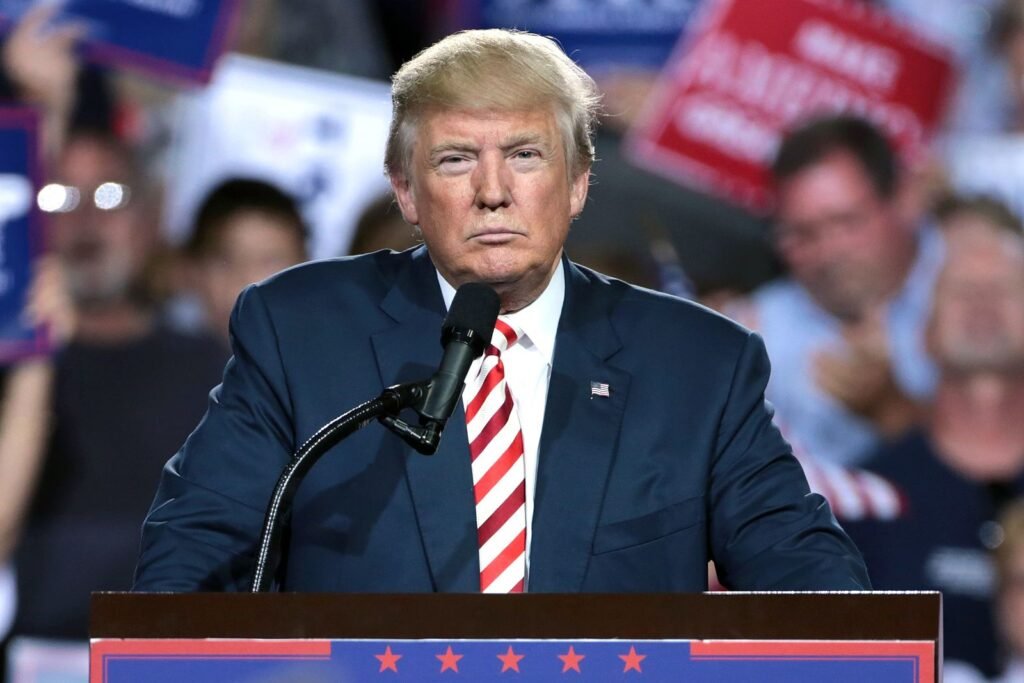World News
Tesla’s range-flation problem, Waymo reverses on self-driving trucks and Ford tweaks its EV playbook on July 30, 2023 at 11:29 pm

The Station is a weekly newsletter dedicated to all things transportation. Sign up here — just click The Station — to receive the newsletter every weekend in your inbox. Subscribe for free.
Welcome back to The Station, your central hub for all past, present and future means of moving people and packages from Point A to Point B.
Hey frens! I’m back from vacation and who-wee — a lot happened this week from automaker earnings and the Tesla range inflation drama to Waymo tapping the brakes on self-driving and Cruise expanding to yet another city.
One other note, you can find me on TechCrunch’s Equity podcast, a place where I will show up on a semi-regular basis, including this episode that came out Friday!
Onward!
Want to reach out with a tip, comment or complaint? Email Kirsten at kirsten.korosec@techcrunch.com.
Reminder that you can drop us a note at tips@techcrunch.com. If you prefer to remain anonymous, click here to contact us, which includes SecureDrop (instructions here) and various encrypted messaging apps.
Micromobbin’
Is there anything else to talk about besides Lyft mulling the sale of its ebike division?
Lyft posted on its blog that it had received “strong inbound interest” in its bikes and scooters business.
The company stated:
As a leading bikeshare provider, supplying solutions to over 53 markets across 15 countries, it’s only logical for Lyft to listen to credible proposals and explore strategic partners and options in several forms to serve more riders in more cities. We expect this part of the business to continue to be a meaningful part of Lyft’s offering now and into the future.
The announcement runs contrary to what newly appointed CEO David Risher has told reporter Rebecca Bellan in past interviews. Risher, who is known as a big supporter of ebikes, did say the company planned to focus on its core ride-hailing business and become profitable, but it didn’t seem like the two-wheeled share service was on the chopping block.
The news prompted some here at TechCrunch to declare that shared micromobility was officially dead. I’m not so sure.
What do you think?
Deal of the week
Instead of a deal of the week, I’d like to call y’all’s attention to the list of deals below. See a pattern emerging?
Yup, me too. Software and EV charging sure seems like a thing, eh?
Other deals that got my attention this week …
Ampcontrol, an EV fleet management software startup, raised $10 million in Series A funding round led by the Westly Group. Other investors included AngelPad and Lorimer Ventures.
Aurora raised $820 million in a public and concurrent private offering (a deal we covered last week.) As I mentioned in the Equity podcast, tucked inside the SEC filing detailing the deal we learn that Uber invested $1 million in the private placement and $74 million in the public follow-on. When taking into account the Class B shares, Uber has a 22% stake in Aurora.
EV.energy, the UK-based EV charging software startup, raised $33 million in a Series B round led by National Grid Partners with participation from new investors Aviva Ventures, WEX Venture Capital and InMotion Ventures, as well as existing investors Energy Impact Partners, Future Energy Ventures and ArcTern Ventures.
Flipturn, a startup that developed a software management system for EV truck fleets, raised $4.5 million in a seed round led by Accel.
Field, the battery energy storage systems developer launched by former Bulb Energy co-founder Amit Gudka, raised £200 million from DIF Capital Partners.
Voltpost, a New York City–based startup that developed hardware that converts lampposts into EV charging spots, raised $3.6 million in a seed round led by RWE Energy Transition Investments with participation from Twynam Funds Management, Exelon Foundation, Good News Ventures and Climate Capital.
VW Group made a pair of deals with Chinese automakers aimed at shoring up sales in China, including taking a 5% stake valued at about $700 million XPeng as part of a deal to jointly develop and produce two mid-sized EVs for China. In a separate agreement, Audi expanded a partnership with SAIC. Reporter Rita Liao provides insight on what this deal could mean for future alliances between China and the West.
Notable reads and other tidbits
Autonomous vehicles
Cruise self-driving vehicles arrived in Nashville this week for testing; a robotaxi service is expected to follow. Cruise will also begin testing in multiple, new cities as part of its aggressive commercial ramp, according to the company. If the company’s careers page provides any hints, it seems Atlanta is one of them.
Want evidence that Cruise is accelerating? One year ago, Cruise only operated in San Francisco. Cruise has since expanded to Austin, Dallas, Houston, Phoenix and most recently Miami.
Rafaela Vasquez, the safety driver who was behind the wheel of an Uber ATG self-driving vehicle when it struck and killed a pedestrian in Tempe in 2018, pleaded guilty to endangerment. Vasquez was sentenced to three years of supervised probation.
Waymo is tapping the brakes on self-driving trucks and shifting most of its capital, resources and talent to one commercial bet: ride-hailing. I won’t call it a complete shutdown as limited testing will continue. But the program as it once stood is over. It seems most people on the team have kept their jobs at Waymo, per sources. (However, it’s still early; we’ll see how it all shakes out once the program is wound down.)
Earnings
Ford and GM both posted earnings this week and there were some general themes; namely that business is good if you’re selling gas and hybrid trucks and SUVs. The EV business? Well that’s a bit of a money loser. Both companies raised profit guidance for the year and GM said it would cut costs another $1 billion as it focuses on earning more money.
Ford, which now breaks out earnings for three business units, is tweaking its EV plans. The big line item is that Ford expects its EV business to lose $4.5 billion in 2023 — double what it previously forecast. And the company seems to be more bullish than ever on hybrids, which reminds me of Bill Ford’s comments way back in 2016 about viewing hybrids as a transitional, or bridge technology. At the time, the sentiment was about consumer adoption. These days Ford is learning that hybrid technology applied to trucks is particularly attractive to buyers.
Electric vehicles, batteries & charging
Ample, a San Francisco-based startup, is bringing its modular EV battery swapping technology to Mitsubishi Fuso’s electric trucks this winter.
GM isn’t going to kill off the Chevy Bolt EV after all. This is going to be a next-gen Bolt EV based on the new Ultium platform and battery design. I’m fascinated by this reversal because it happened so quickly (3 months!). Will it still be assembled at the Orion plant? Reminder: Orion was supposed to be retooled for electric truck production once the Bolt went out of production at the end of 2023.
Tesla exaggerated the range estimates for its EVs for years, prompting owners to flood its service center over concerns that their vehicles needed service, according to a new detailed Reuters report. As I note in my own story, one of the nagging problems with range estimates is their variability, which allows some automakers to push the boundaries of the system. While the EPA does review and approve those estimates, it allows automakers to use one of two methods to reach those figures: use a standard formula that converts fuel economy results, or conduct additional tests to come up with their own range estimate. Tesla has always done the latter, which gives far better numbers.
Miscellaneous
Lacuna Technologies, a startup that sold software services to cities to help create and enforce transportation policies, has shut down, per a LinkedIn post from product lead Samuel Jackson. (h/t to the source who pointed me to the post).
Disrupt!
Beep beep! TechCrunch Disrupt 2023, taking place in San Francisco on September 19–21, is where you’ll get the inside scoop on the future of mobility. Come and hear from today’s leading mobility entrepreneurs on what it takes to build and innovate for a more sustainable future. Save up to $600 when you buy your pass now through August 11, and save 15% on top of that with promo code STATION. Learn more.
The Station is a weekly newsletter dedicated to all things transportation. Sign up here — just click The Station — to receive the newsletter every weekend in your inbox. Subscribe for free. Welcome back to The Station, your central hub for all past, present and future means of moving people and packages from Point A to Point
Business
Pros and Cons of the Big Beautiful Bill

The “Big Beautiful Bill” (officially the One Big Beautiful Bill Act) is a sweeping tax and spending package passed in July 2025. It makes permanent many Trump-era tax cuts, introduces new tax breaks for working Americans, and enacts deep cuts to federal safety-net programs. The bill also increases spending on border security and defense, while rolling back clean energy incentives and tightening requirements for social programs.

Pros
1. Tax Relief for Middle and Working-Class Families
- Makes the 2017 Trump tax cuts permanent, preventing a scheduled tax hike for many Americans.
- Introduces new tax breaks: no federal income tax on tips and overtime pay (for incomes under $150,000, with limits).
- Doubles the Child Tax Credit to $2,500 per child through 2028.
- Temporarily raises the SALT (state and local tax) deduction cap to $40,000.
- Creates “Trump Accounts”: tax-exempt savings accounts for newborns.
2. Support for Small Businesses and Economic Growth
- Makes the small business deduction permanent, supporting Main Street businesses.
- Expands expensing for investment in short-lived assets and domestic R&D, which is considered pro-growth.
3. Increased Spending on Security and Infrastructure
- Allocates $175 billion for border security and $160 billion for defense, the highest peacetime military budget in U.S. history.
- Provides $12.5 billion for air traffic control modernization.
4. Simplification and Fairness in the Tax Code
- Expands the Earned Income Tax Credit (EITC) and raises marginal rates on individuals earning over $400,000.
- Closes various deductions and loopholes, especially those benefiting private equity and multinational corporations.

Cons
1. Deep Cuts to Social Safety Net Programs
- Cuts Medicaid by approximately $930 billion and imposes new work requirements, which could leave millions without health insurance.
- Tightens eligibility and work requirements for SNAP (food assistance), potentially removing benefits from many low-income families.
- Rolls back student loan forgiveness and repeals Biden-era subsidies.
2. Increases the Federal Deficit
- The bill is projected to add $3.3–4 trillion to the federal deficit over 10 years.
- Critics argue that the combination of tax cuts and increased spending is fiscally irresponsible.
3. Benefits Skewed Toward the Wealthy
- The largest income gains go to affluent Americans, with top earners seeing significant after-tax increases.
- Critics describe the bill as the largest upward transfer of wealth in recent U.S. history.
4. Rollback of Clean Energy and Climate Incentives
- Eliminates tax credits for electric vehicles and solar energy by the end of 2025.
- Imposes stricter requirements for renewable energy developers, which could lead to job losses and higher electricity costs.

5. Potential Harm to Healthcare and Rural Hospitals
- Reduces funding for hospitals serving Medicaid recipients, increasing uncompensated care costs and threatening rural healthcare access.
- Tightens verification for federal premium subsidies under the Affordable Care Act, risking coverage for some middle-income Americans.
6. Public and Political Backlash
- The bill is unpopular in public polls and is seen as a political risk for its supporters.
- Critics warn it will widen the gap between rich and poor and reverse progress on alternative energy and healthcare.
Summary Table
| Pros | Cons |
|---|---|
| Permanent middle-class tax cuts | Deep Medicaid and SNAP cuts |
| No tax on tips/overtime for most workers | Millions may lose health insurance |
| Doubled Child Tax Credit | Adds $3.3–4T to deficit |
| Small business support | Benefits skewed to wealthy |
| Increased border/defense spending | Clean energy incentives eliminated |
| Simplifies some tax provisions | Threatens rural hospitals |
| Public backlash, political risk |
In summary:
The Big Beautiful Bill delivers significant tax relief and new benefits for many working and middle-class Americans, but it does so at the cost of deep cuts to social programs, a higher federal deficit, and reduced support for clean energy and healthcare. The bill is highly polarizing, with supporters touting its pro-growth and pro-family provisions, while critics warn of increased inequality and harm to vulnerable populations.
Business
Trump Threatens to ‘Take a Look’ at Deporting Elon Musk Amid Explosive Feud

The escalating conflict between President Donald Trump and Elon Musk reached a new peak this week, as Trump publicly suggested he would consider deporting the billionaire entrepreneur in response to Musk’s fierce criticism of the president’s signature tax and spending bill.

“I don’t know, we’ll have to take a look,” Trump told reporters on Tuesday when asked directly if he would deport Musk, who was born in South Africa but has been a U.S. citizen since 2002.
This threat followed a late-night post on Trump’s Truth Social platform, where he accused Musk of being the largest recipient of government subsidies in U.S. history. Trump claimed that without these supports, Musk “would likely have to shut down operations and return to South Africa,” and that ending such subsidies would mean “no more rocket launches, satellites, or electric vehicle production, and our nation would save a FORTUNE”.
Trump also invoked the Department of Government Efficiency (DOGE)—a federal agency Musk previously led—as a potential tool to scrutinize Musk’s companies. “We might have to put DOGE on Elon. You know what DOGE is? The DOGE is the monster that might have to go back and eat Elon,” Trump remarked, further intensifying the feud.

Background to the Feud
The rupture comes after Musk’s repeated attacks on Trump’s so-called “Big, Beautiful Bill,” a comprehensive spending and tax reform proposal that Musk has labeled a “disgusting abomination” and a threat to the nation’s fiscal health. Musk, once a Trump ally who contributed heavily to his election campaign and served as a government advisor, has called for the formation of a new political party, claiming the bill exposes the need for an alternative to the current two-party system.
In response, Trump’s allies have amplified questions about Musk’s citizenship and immigration history, with some suggesting an investigation into his naturalization process. However, legal experts note that deporting a naturalized U.S. citizen like Musk would be extremely difficult. The only path would involve denaturalization—a rare and complex legal process requiring proof of intentional fraud during the citizenship application, a standard typically reserved for the most egregious cases.
Political Fallout
Musk’s criticism has rattled some Republican lawmakers, who fear the feud could undermine their party’s unity ahead of the 2026 midterm elections. Meanwhile, Musk has doubled down on his opposition, warning he will support primary challengers against Republicans who back Trump’s bill.
Key Points:
- Trump has publicly threatened to “take a look” at deporting Elon Musk in retaliation for Musk’s opposition to his legislative agenda.
- Legal experts say actual deportation is highly unlikely due to the stringent requirements for denaturalizing a U.S. citizen.
- The feud marks a dramatic reversal from the pair’s earlier alliance, with both men now trading barbs over social media and in public statements.
As the dispute continues, it has become a flashpoint in the broader debate over government spending, corporate subsidies, and political loyalty at the highest levels of American power.
News
Christianity Emerges as Fastest-Growing Religion in Iran Despite Crackdowns

Christianity is experiencing unprecedented growth in Iran, making it the fastest-growing religion in the country despite severe government crackdowns and the risk of harsh penalties for converts. Recent studies and reports from both religious organizations and independent researchers confirm that the number of Christians in Iran has surged over the past decade, with estimates now ranging from 800,000 to as many as 3 million believers, many of whom are converts from Islam.

This remarkable trend is unfolding against a backdrop of systematic persecution. Iranian authorities routinely target house churches, arresting and imprisoning Christians for activities deemed a threat to national security or as “propaganda against the regime.” In 2022 alone, at least 134 Christians were arrested, with dozens receiving prison sentences or being forced into exile. Conversion from Islam remains a criminal offense in Iran, punishable by severe penalties, including, in rare cases, the death penalty.
Despite these dangers, the church in Iran is flourishing underground. The growth is especially notable among young people, many of whom are disillusioned with the country’s strict Islamic rule and are seeking spiritual alternatives that emphasize personal faith and community. Secret house churches and underground networks have become the primary venues for worship and community, with large-scale baptisms sometimes taking place in secret or even across the border.

The Iranian government has acknowledged the trend with concern. Officials have dispatched agents to counter the spread of Christianity, and Islamic clerics have issued warnings about the faith’s rapid expansion. Nevertheless, satellite TV broadcasts, digital outreach, and word-of-mouth continue to fuel the movement, bringing the Christian message to new audiences across the country.

Scholars and observers agree that Iran is witnessing one of the highest rates of Christianization in the world today. Forecasts suggest the Christian population could double again by 2050, even as persecution persists. For many Iranians, Christianity offers a message of hope and transformation that stands in stark contrast to the repressive environment they face, making its spread all the more remarkable in one of the world’s most closed societies.

 Advice1 week ago
Advice1 week agoWhat SXSW 2025 Filmmakers Want Every New Director to Know

 Film Industry2 weeks ago
Film Industry2 weeks agoFilming Yourself and Look Cinematic

 Politics3 weeks ago
Politics3 weeks agoBolanle Newsroom Brief: Israel Strikes Iran’s Nuclear Sites — What It Means for the World

 News5 days ago
News5 days agoFather Leaps Overboard to Save Daughter on Disney Dream Cruise

 Advice1 week ago
Advice1 week agoWhy 20% of Us Are Always Late

 Health4 days ago
Health4 days agoMcCullough Alleges Government Hid COVID Vaccine Side Effects

 Entertainment3 weeks ago
Entertainment3 weeks agoThe Hidden Reality Behind Victoria’s Secret

 Advice1 week ago
Advice1 week agoHow to Find Your Voice as a Filmmaker




























